When you commit crimes of violence against someone with whom you have been or are currently in an intimate relationship, it’s called domestic violence. What many people don’t realize, however, is what that actually means according to Colorado law.
In this comprehensive guide, we’re going to tell you everything you need to know about domestic violence charges in our state, including how it is legally defined and what can happen if you are convicted of this crime.
Domestic Violence: What Is It?
Domestic violence in Colorado is not a standalone charge. Instead, it is seen as a “sentencing enhancement” or aggravating circumstance and will increase the penalty for any crime perpetrated against someone who the accused has (or has had) in an intimate relationship.
Still, confused? That’s understandable. Let’s break it down further.
Colorado law defines an intimate relationship as a relationship between former or current spouses, unmarried couples currently in a relationship or who have been in one in the past, and anyone you share a child with – regardless of whether you were married or not.
It is also important to note that domestic violence does not have to include an act that causes physical injury or damage – in some cases, the accused may face a charge without even touching the alleged victim.
How is this possible?
Because under the laws of our state, domestic violence can be a part of any crime or or municipal ordinance violation against another or against property in order to:
- Coerce
- Control
- Intimidate
- Punish
- Get revenge

For example, breaking your boyfriend’s phone to teach them a lesson can be defined as domestic violence. In some circumstances, so can following your wife to make sure she’s not cheating on you.
Again, domestic violence doesn’t always mean that physical abuse or sexual abuse has taken place – financial abuse, emotional abuse, and technological abuse can also occur.
How Common Are Colorado Domestic Violence Incidents?
Some quick stats from the National Coalition Against Domestic Violence:
- 8% of Colorado women and 30.5% of Colorado men experience intimate partner violence or stalking in their lifetime
- Local domestic violence hotlines get about 13 calls every minute on a typical day
- Domestic violence made up 20% of all violent crime in 2018
- 15% of homicides in Colorado are between intimate partners
Denver even breaks their DV statistics down by month, day of the week, and time of day:
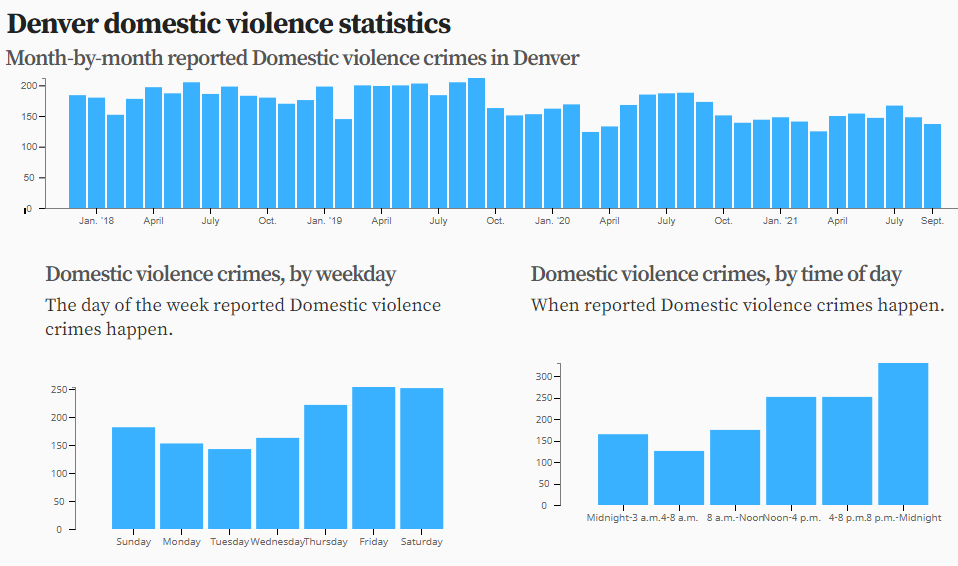
Domestic violence 2021 crime report Source: The Denver Post 10/2021
By far the most damning statistics, though, are those that involve fatalities:
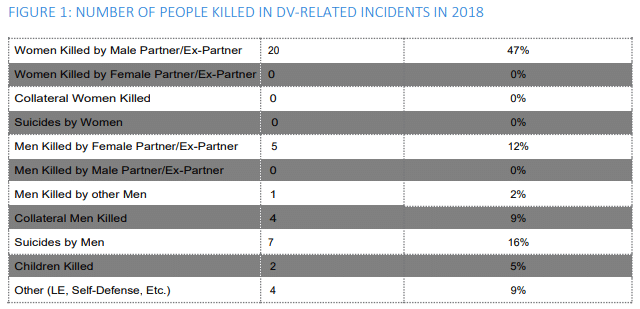
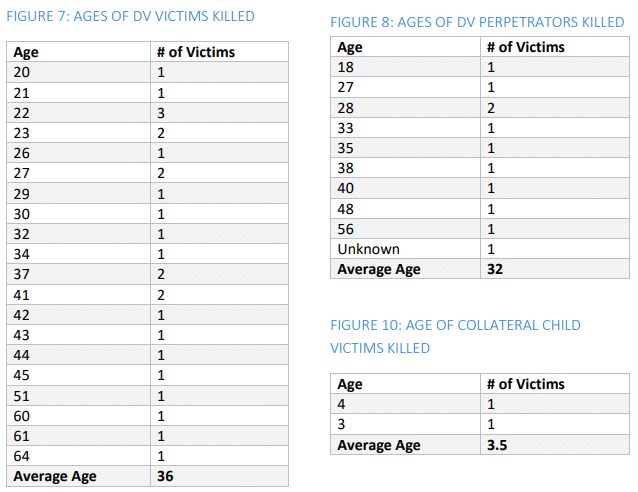
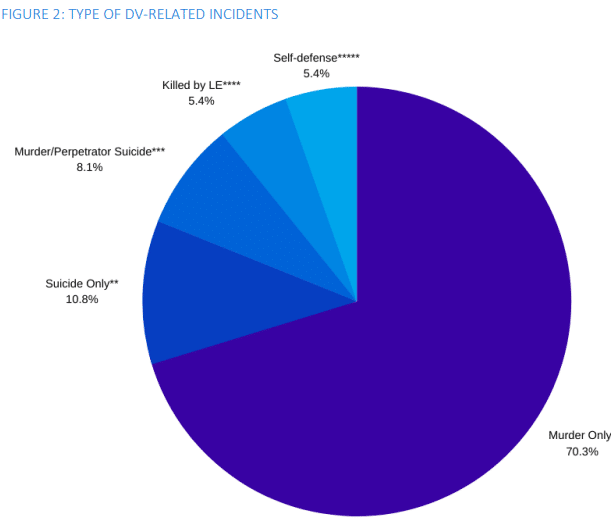
Annual Report 2019 Source: Colorado Domestic Violence Fatality Review Board 2019
Beyond the total number of domestic violence deaths, you can see a clear breakdown of who died and how it happened.
What types of charges often include domestic violence enhancements in our state? Some of the most common include:
- Assault
- Sexual assault
- Stalking
- Violation of a restraining order
- Harassment
- False imprisonment
- Menacing
- Sexual contact
Police in Cases of Domestic Violence
The domestic violence laws in Colorado also impact how police react to calls when they have probable cause to believe violence is or has taken place.
If they are called to the scene and each party maintains the other was the aggressor, they do not have to make a domestic violence arrest. However, they are required under the law to determine if one or both of the people at the scene committed a crime, and will investigate to see if any of these other circumstances exist:
- If there is a history of domestic violence complaints
- If there are injuries to anyone and how severe those injuries are
- If there is a likelihood in the future that either party could be injured
- If one of the parties acted in self-defense
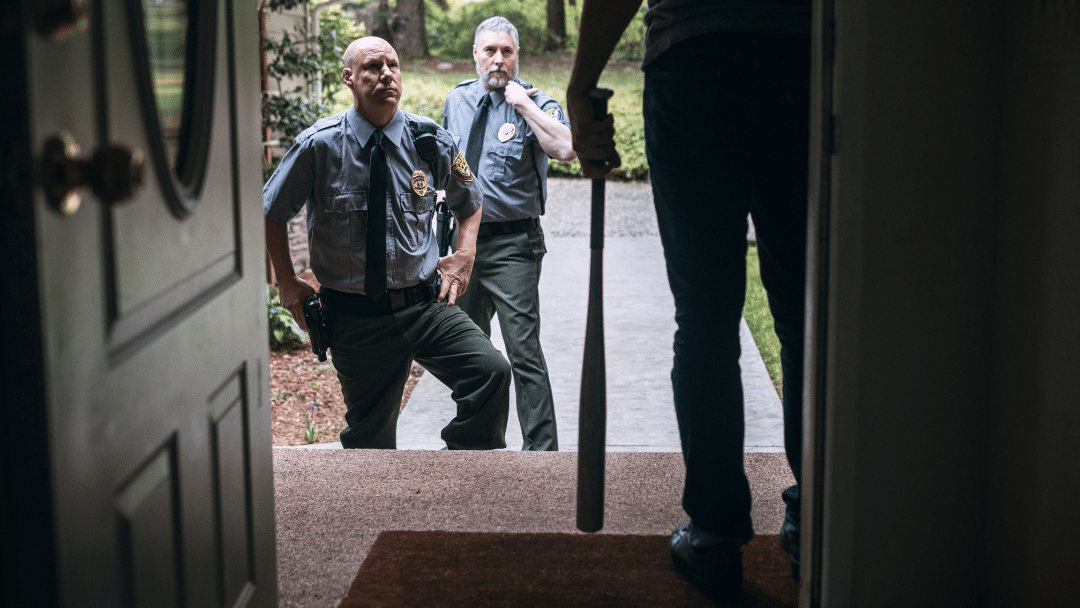
Once they have weighed these things, they are required under the law to arrest anyone they have probable cause to believe has committed a crime that falls under the definition of domestic violence. The person they suspect to be the aggressor will be arrested – this is called mandatory arrest.
The reason Colorado law has a provision for mandatory arrest is to help prevent the situation from escalating or continuing, which can put someone at risk of serious injury or death.
It’s important to note that once these events are put in motion, they cannot be undone. If someone calls the police to the scene and they have probable cause to believe domestic violence is occurring, they will arrest and charge the suspect no matter what stance the victim takes. Victims cannot drop charges. It’s up to the state prosecutor to determine whether or not the case will go forward in the courts.
Penalties for Domestic Violence in Colorado
Domestic violence is not, as previously mentioned, a separate offense in our state. Instead, it is an aggravating factor in another act. If the defendant is charged and found guilty of an underlying crime, such as assault, and the court finds that domestic violence was involved, then they will sentence them for the assault and require the completion of domestic violence treatment as well.
In cases that include domestic violence enhancements, the court will take several steps:
Evaluation Prior to Sentencing
The court can order the person convicted of a crime involving domestic violence to have an evaluation done prior to sentencing. This evaluation is meant to help guide the court to a more appropriate sentence.
Past Offenses

The court will also look at the record of the defendant. If they have three or more prior convictions for crimes where domestic violence was a factor, then they can face increased penalties as a result.
In fact, it is possible to be labeled by the court as a habitual domestic violence offender and any new offenses that a person is arrested for – even if they’re usually misdemeanors – can be prosecuted as felonies and sentenced that way as well. As a habitual domestic violence offender, you can face Class 5 felony charges, which can place you in prison for up to four years.
If someone is convicted of a crime involving domestic violence, then there are also unique sentencing guidelines. For example, anyone convicted of domestic violence crimes cannot be placed on house arrest as a sentencing option if the home is shared with the victim. They also may not be eligible for probation in some circumstances.
This is because the safety of domestic violence victims is paramount to the court, especially if children are involved in the case. It’s also important to note that anyone convicted of domestic violence charges may also lose their right to purchase or possess ammunition or firearms.
Understanding Colorado Protective Orders
Protective orders are granted to domestic violence victims through civil, not criminal, courts. They are meant to help protect the victim from further threats or harm, including any contact with the defendant named in the order.
A judge in civil court will normally issue a temporary civil protective order when evidence is presented that shows the victim to be in imminent danger. When this order is written, the court will issue a citation and order the person named in the order to appear for a hearing.
After this hearing takes place, the court can make the protective order either temporary or permanent if they determine that there were acts committed that are grounds for a protective order to be issued and if the acts will continue unless the order is granted.
What Happens If You Violate a Protective Order?

In Colorado, if a person violates a protective order, that is a crime in itself. The state considers it to be a Class 2 misdemeanor which can carry a penalty of up to one year in prison and fines of as much as $250.
It’s also important to note that if a person has been previously convicted of violating a protective order in Colorado that any new violation is considered a Class 1 misdemeanor which can have harsher penalties of up to 18 months in prison and fines of as much as $5,000.
Colorado Domestic Violence Cases are Handled Swiftly
Domestic violence is taken very seriously in Colorado, which means that these types of cases are fast-tracked in the justice system to be dealt with swiftly.
Police fill out their report the same day as a domestic violence arrest takes place, and the defendant, when in court for their first hearing, will enter their initial plea. In non-domestic violence cases, this usually takes several weeks to happen.
This is why it’s important to ensure you contact an attorney as soon as possible if you are arrested for a crime with domestic violence as an aggravating factor. The sooner you have an attorney present, the sooner you can ensure your rights are being represented.
Non-Criminal Consequences of Colorado Domestic Violence
While there are penalties such as fines and jail time for domestic violence crimes, there are also consequences for this conviction outside of the criminal justice system that people should be aware of.

Having a crime of domestic violence on your criminal record can impact your life in a number of ways. It can be more difficult to find a job or apply for a professional license. It can impact your rights to child custody as well as your ability to get loans or secure housing. You also can lose your right to possess firearms and ammunition.
DV Considerations for Those in the Military
If you’re in the military, there are also some important ramifications to be aware of if you are convicted of a crime of domestic violence.
Federal law prohibits anyone convicted of a misdemeanor or felony crime of domestic violence from legally possessing firearms. This can be problematic for those in the military since you must be able to legally possess firearms as a member.
This is yet another reason why it’s crucial to get an attorney on board early in the process if you’re facing charges that include domestic violence. If you can plea for a lesser charge or even be acquitted, it can help to protect your options in the future.
Possible Defenses for Crimes of Domestic Violence
The best defense is typically determined by the circumstances surrounding your particular case, so it’s not one-size-fits-all when it comes to formulating the best strategy to fight your charges. However, there are some common defenses those accused of crimes with a domestic violence element use in court. These include:
Self Defense
If you were acting in a way that was only meant to defend yourself from the actions of another, that is a solid defense to use in court.
Your attorney will work to gather and present evidence that shows the other person involved was acting in a way that was meant to intentionally inflict physical harm on you and that you were using reasonable force to defend yourself in the situation.
False Allegations
In some cases, domestic violence allegations may be false. It’s not totally unheard of for someone to use allegations of domestic violence as a way to get revenge or to get some sort of advantage over another person.

If this is what has happened to you, make sure to let your attorney know so they can look for evidence to help support your version of events and show the court that the allegations against you are indeed false.
Police Misconduct
The police typically do their best to ensure that the rights of everyone are upheld. However, in some circumstances, there may be misconduct on behalf of officers, and when that happens it can be a good defense to charges.
Your attorney will scour the police records relating to your case and make sure that your rights were not violated at any point during the process. If misconduct is found, it could potentially lead to the charges against you being dropped completely. Because of this, it’s vital to understand what occurred in your case and to make sure that everything happened as it should have according to the law.
Burden of Proof
Remember, in any criminal matter in Colorado, it’s up to the prosecution to prove their case against you. All you have to do is cast reasonable doubt on their case.
That can be accomplished in several different ways. If you can establish an alibi for the incident in question or gather witness statements that contradict the story the prosecution is sharing, that’s one way to cast doubt.
You can also use strategies such as showing that what happened was an accident or that you were acting in defense of someone else. Let your attorney work with you to find the best strategy to help cast doubt on the prosecution’s case.

Domestic violence in Colorado is a serious matter. The best thing you can do if you find yourself accused of a crime that involves domestic violence as an aggravating factor is to make sure you have an experienced attorney on your side. Understanding the charges against you as well as your rights in the proceedings that occur each step of the way is crucial to helping you face domestic violence charges.
About the Author:
Kimberly Diego is a criminal defense attorney in Denver practicing at The Law Office of Kimberly Diego. She obtained her undergraduate degree from Georgetown University and her law degree at the University of Colorado. She was named one of Super Lawyers’ “Rising Stars of 2012 & 2019” and a “Top 100 Trial Lawyers in Colorado” for 2012-2020 by The National Trial Lawyers. Both honors are limited to a small percentage of practicing attorneys in each state. Additionally, Expertise names her to its lists of the 25 Best Denver DUI Lawyers and 21 Best Denver Criminal Defense Lawyers, both in 2020. Ms. Diego has also been recognized for her work in domestic violence cases.





